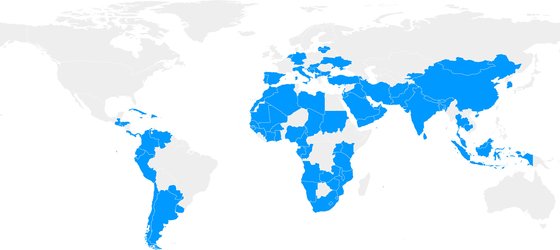National IDs Around the World — Interactive map
About this Data Visualization : This interactive map displays the presence of National IDs and electronic IDs, including biometric IDs, in countries globally. The raw dataset used to create the map data originates from the World Bank (See data sourcing below). This dataset covers high, middle and lower income countries. ...


